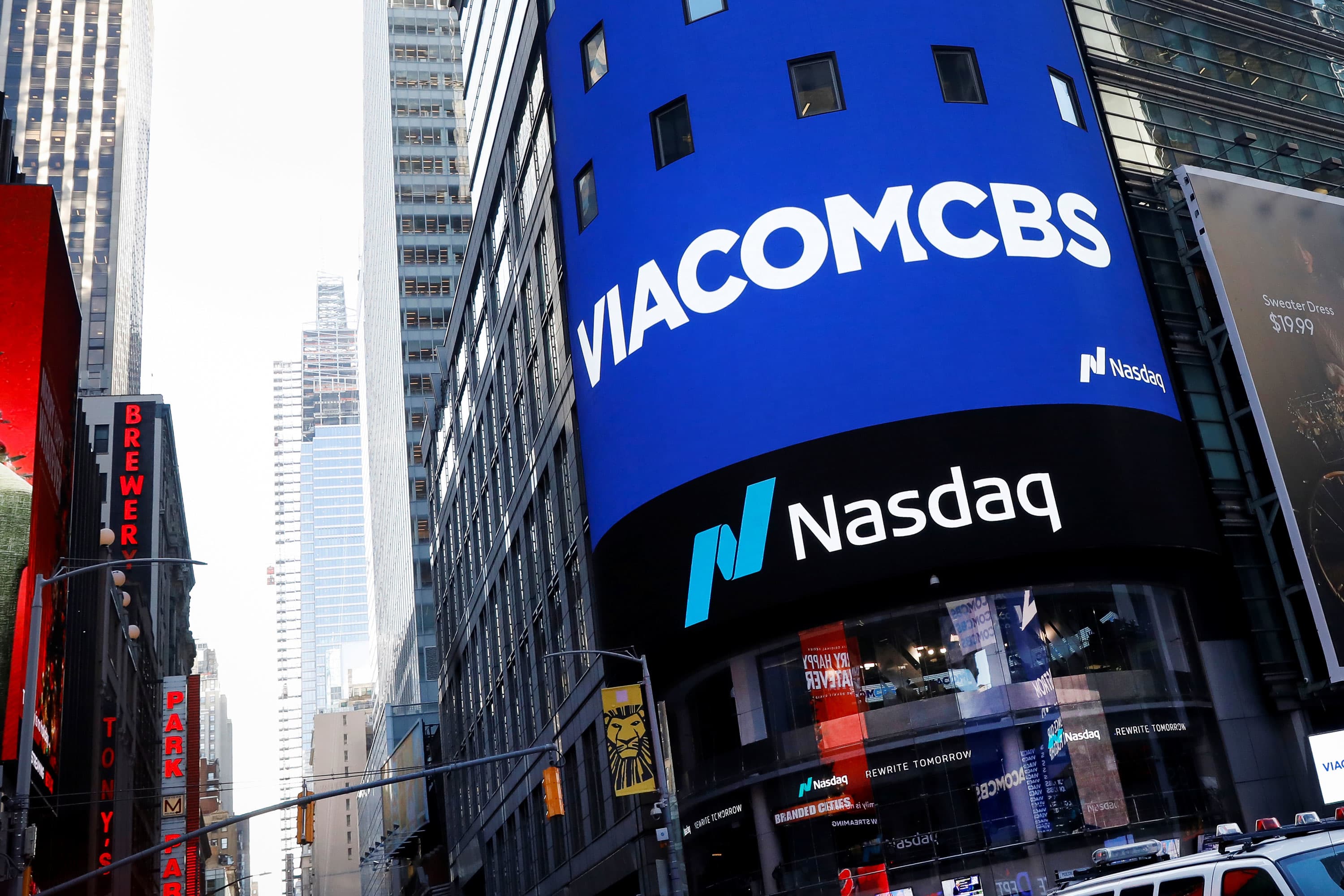
The ViacomCBS logo is displayed on the Nasdaq MarketSite to celebrate the company’s merger, in New York, December 5, 2019.
Brendan McDermid | Reuters
Shares of ViacomCBS continued to plunge Wednesday, trading down more than 20% as investors continued to react to a new stock sale and questioned the ability of the media company to execute successfully on its streaming strategy.
The drop comes on the back of Tuesday’s stock dip, when shares closed down 9%. Shares began to fall this week after the company announced it would raise $3 billion from new stock offerings.
In a Wednesday note, Bank of America Securities analysts said that ViacomCBS’s move to streaming was the “right strategy” for the media company, “but hard to execute.”
The company launched its Paramount+ streaming service earlier this month. Media companies have been pouring funds into new content as the field gets more crowded, and the new funds from the stock sale could help Paramount+ from peers. But the analysts warned that it will be hard pressed to compete with “large scaled streaming players” like Netflix and Disney+.
In a note on Tuesday, AB Bernstein analysts wrote they supported the secondary raise, saying that it could provide a cushion against a downturn in ad revenue or a way to plow more money into streaming. But the analysts reiterated that the stock was “significantly over-priced” and warned that the company’s legacy business “insurmountable structural headwinds” and that it could “waste billions on streaming offerings that we believe will struggle to carry their own weight.”
ViacomCBS wasn’t the only new streaming entrant to suffer a fall on Wednesday. Discovery shares fell as much as 10% after UBS downgraded the stock to sell. Analysts wrote that its nascent screaming service was “starting from a better position than peers” with a stronger international presence and fewer legacy licensing deals (meaning less risk of cannibalizing existing revenue as it shifts to streaming).
But the UBS note also warned, “we remain concerned regarding the ultimate scalability of the service in relation to the decline of the linear business.”






















